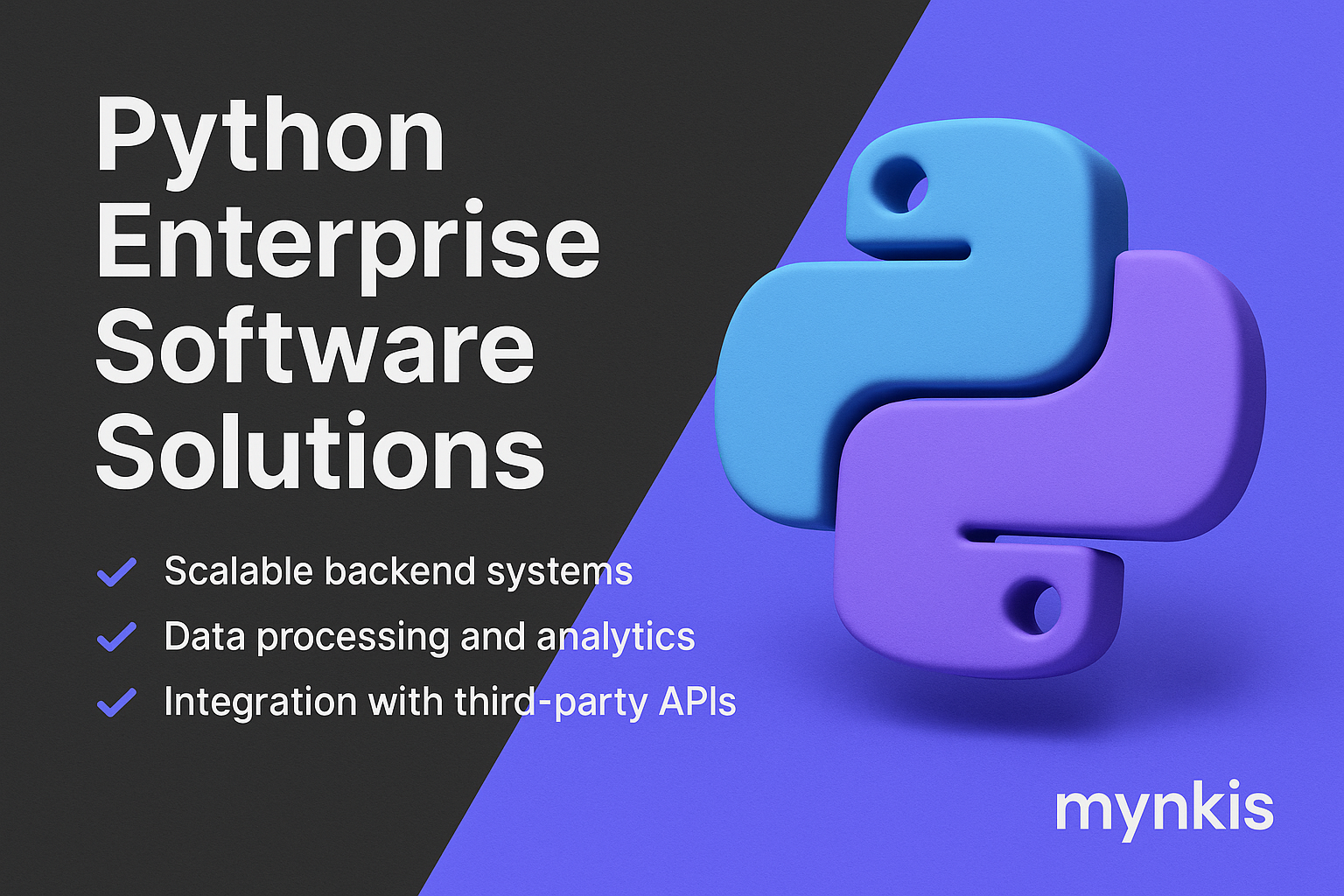Schedule a Demo
In my work with operations managers and CEOs, I've seen firsthand how Python has rapidly become a cornerstone in enterprise software development. Its simplicity and versatility are not just buzzwords; they are real qualities that have tangible impacts on business operations. From startup founders to the tech directors of S&P 500 companies, there's a consensus: Python's role in building robust software solutions is growing year by year.
Python stands out in the tech toolkit of enterprise developers for several compelling reasons. For one, its readability is second to none, which means developers can write and maintain code faster, saving costs and speeding up product launches. Then there's its vast library of modules and frameworks, like Django and Flask, which are specifically designed for web application development.
Scalability is a buzzword often tossed around in the world of custom software development. With Python, this term comes to life. Large enterprises leverage Python's capability to scale effortlessly, from supporting thousands to millions of users without a hiccup. I've guided several clients through scaling their Python-based applications, and the results are consistently impressive. An executive from a burgeoning SaaS company once shared with me that Python's scalability transformed their platform, enabling them to handle a 300% increase in traffic overnight.
Let's dive into a real-world application. A leading financial tech company decided to revamp its infrastructure with Python to enhance its custom software development. The result? A dramatic reduction in operational costs and a marked increase in software agility. The CTO reported that by adopting Python, their system maintenance time was reduced by over 50%, allowing their team to focus on innovation rather than troubleshooting legacy systems.
Python's role extends beyond traditional software development into the realms of data science and artificial intelligence, integral for modern businesses seeking insights and predictive modeling. Libraries like Pandas and NumPy, coupled with frameworks like TensorFlow and PyTorch, are revolutionizing how enterprises harness data. A Silicon Valley startup I collaborated with recently utilized Python to implement a predictive AI model that now forecasts customer churn with over 90% accuracy.
In the high-stakes world of enterprise, security cannot be an afterthought. Python, when implemented with best practices, offers robust security features suitable for even the most sensitive applications. I've worked closely with compliance officers to ensure Python frameworks adhere to industry standards like GDPR and HIPAA, ensuring that clients feel secure and confident in their software solutions.
The strength of Python lies not only in its technical merits but in its thriving community. I regularly advise companies to tap into this rich resource. From open-source contributions to forums and conferences, there's an incredible pool of knowledge and collaboration available. According to the Python Software Foundation, over a million developers globally contribute to its ecosystem, making it a sustainable choice for businesses.
I often get asked by CTOs and tech leads about the learning curve for adopting Python in their teams. My advice is always the same: embrace it. Python's straightforward syntax means new developers can get up to speed quickly, boosting overall team productivity. A recent survey by Stack Overflow highlighted Python as one of the top languages developers want to learn, underscoring its importance in enhancing workforce capabilities.
One of Python's lesser-celebrated but essential strengths is its ability to integrate with existing systems. Whether it's connecting with legacy databases or linking with modern SaaS platforms, Python's versatility shines through. In my consulting projects, I've helped enterprises integrate Python with systems like Salesforce and Oracle, enhancing their enterprise web solutions and streamlining operations across the board.
Looking ahead, I believe Python continues to be a critical part of the future landscape for enterprise software. Its ongoing development and adoption by industry leaders indicate a trend that isn't slowing down. During a roundtable discussion at a recent tech conference, the consensus among leaders was clear: Python is not just for today but is shaping the future of custom software development.
So, what does this mean for your business? Embracing Python can be a strategic move that aligns with both current trends and future growth. From enhancing efficiency and scalability to securing data and expanding your team's capabilities, Python offers a pathway to innovation. If you're considering upgrading your tech stack or venturing into new software territories, Python deserves a serious look.
